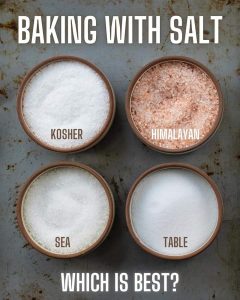Excessive Salt Woes
News Kashmir Analysis
Salt is important for our diet.
It helps you stay hydrated. To stay better hydrated your body needs a delicate balance of sodium and potassium.
Promotes good vascular health.
Balances electrolytes and prevents muscle cramping.
An estimated mean daily salt intake in India stands at 8.0 g (8.9 g/day for men and 7.1 g/day for women) against the World Health Organisation (WHO) recommendation of up to 5 g daily.
Additionally the salt intake was significantly higher in men, those in rural areas and overweight and obese respondents, according to a recent survey by the Indian Council of Medical Research (ICMR) published in the Nature journal. The study is based on a sample survey carried out as part of National NCD Monitoring Survey (NNMS) in India.
The study was conducted in a nationally representative sample wherein dietary sodium intake was estimated from spot urine samples, a validated method used to assess intake. The population mean was calculated using sampling weights; thus, the study findings could be generalised at a population level and used to plan and implement control measures.
“The information on awareness and behaviour of salt intake was self-reported and could be subjected to information bias. The study did not capture data on the actual dietary sources of salt in food items and condiments for any correlation analysis,” it said while declaring the limitation of the study.
The excess use of salt is harmful.The global average salt intake is estimated to be 10.8 grams per day, more than double the WHO recommendation of less than 5 grams of salt per day (one teaspoon). Eating too much salt makes it the top risk factor for diet and nutrition-related deaths. More evidence is emerging documenting links between high sodium intake and increased risk of other health conditions such as gastric cancer, obesity, osteoporosis and kidney disease.
WHO calls on Member States to implement sodium intake reduction policies without delay and to mitigate the harmful effects of excessive salt consumption. WHO also calls on food manufacturers to set ambitious sodium reduction targets in their products.
In Kashmir Valley too we are among the highest consuming places of salt in world. From Bakery to tea we have salt in everything, which needs to be controlled.
Frequent urination is a classic sign that you are consuming too much salt. Most of the time, you may feel an urgent need to wake up in the middle of the night to urinate.
Consuming too much salt can give you swelling in different parts of the body. This could be a reason why you feel bloated in the morning. The swelling can be felt on the fingers and around the ankles. This swelling is caused by excessive fluids in the body’s tissues and is known as edema. Edema is believed to be a symptom of an underlying health condition or a sign of the fact that you are consuming too much salt. Simple solution for this is to cut down on your sodium intake.
The salt woes should be addressed as soon as possible to save this planet from havoc.
We in Kashmir should also limit the use of salt to have healthy life.





